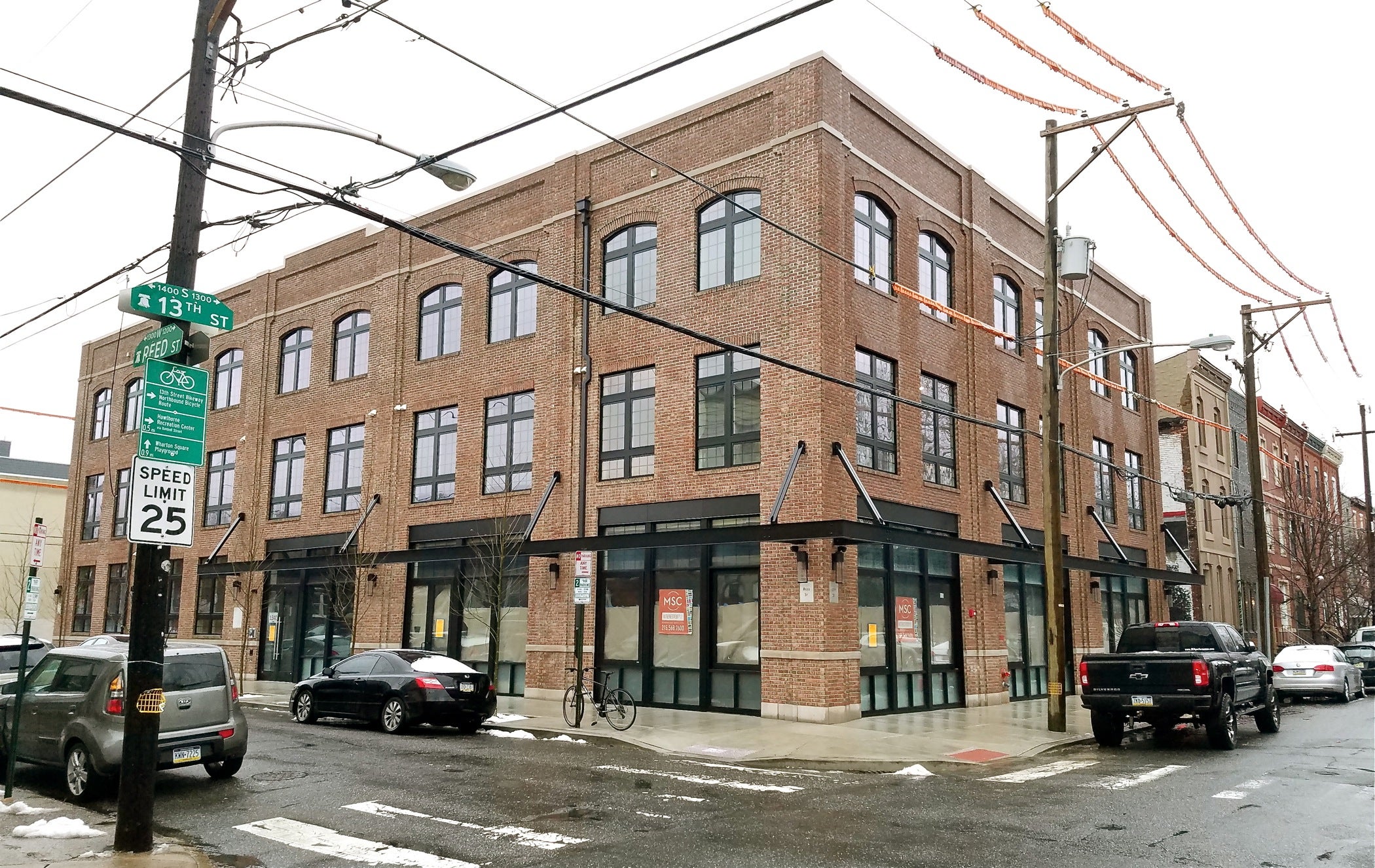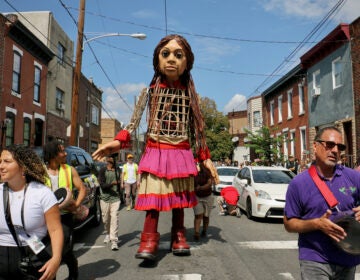South Philly’s Theatre Exile finds bargain-basement home right where it started
The South Philadelphia theater company lost its home of 10 years. Now, it’s moving back to a bigger, better — albeit underground — stage.
Listen 3:18
Pearce Bunting runs through a rehearsal of "An Oak Tree" with Adam Howard at Theatre Exile's new space at 13th and Reed streets. (Peter Crimmins/WHYY)
Over 18 months, Theatre Exile has lived up to its name.
The South Philadelphia theater company lost its home of 10 years at 13th and Reed streets when that building was sold in 2017 and demolished to make way for a mixed-use development.
This week, the company returns to its former address, taking up residence in the basement.
Like every theater company just starting out, Theatre Exile did not have its own performance space in 1996. It presented plays on whatever stage was available at the moment, usually near Center City.
When it finally settled, in 2009, in a former taxi garage across from Columbus Square, sharing the building with a transmission mechanic, it made a commitment to the neighborhood.
“When we first started doing shows in South Philly, I told everyone, ‘I can do the same show in Center City and it would sell better,’” said producing artistic director Deborah Block. “They may not know it’s Theater Exile. We might be confused with Azuka or Interact, and we may not have our identity, but it would sell better. But it’s been worth the investment in the neighborhood to be here.”
Block was sitting in a coffee shop on South Broad Street, a block and a half from her theater and a few blocks from her home. By choosing to stay south of Washington Avenue, where there are no other professional theater venues, Theatre Exile decided to stay small.
However, by championing new playwrights and developing new works, Exile has become widely known for its edgy sensibility.

Setting its site low
In 2017 a developer – Center City Development – bought the building with the intention of demolishing it and building a commercial space on the ground floor, with 23 high-end apartments above renting from $1,600 to $2,600 a month.
Theatre Exile was not part of that plan.
“I said, ‘Would you consider having a theater as the commercial space?’” Block recalled. “They said [chuckling], ‘Deborah, you can’t afford us.’”
The new owner, Noah Ostroff, had his sights set on a restaurant as the ground-floor tenant.
But what about the basement?
“The majority of what a theater does can be subterranean,” said Block. “‘They went, ‘Oh really?’ One week later, they came back with initial designs.”
This week, Theatre Exile will open its first production in a new, 125-seat theater with 12-foot ceilings, more than twice the size of its previous performance space.
“An Oak Tree” (2005) by Tim Crouch focuses on a hypnotist’s stage performance as he and his subject go on an almost psychedelic unspooling of a tragic car accident. The production is a bit rushed as the space is not entirely finished. It only passed electrical inspection about 36 hours before the final tech rehearsal.
To accommodate Exile’s 7,000-square-foot stage, lobby, administrative office, and storage, Center City Developers built the space larger than originally planned, with an ADA compliant elevator and an extensive electrical system. It also required petitioning for a neighborhood zoning variance.
It was all worth it, said owner Ostroff.
“To be perfectly honest with you, I thought it was pretty cool to have a well-known theater in one of my buildings,” he said. “They are really great people and they have a great operation. Frankly, we just wanted to be in business with them.”
Ostroff also said the numbers worked out. There are not many other ways to make a basement generate revenue, and Theatre Exile is locked into a 10-year lease. It is officially named the Exile Building.
WHYY is your source for fact-based, in-depth journalism and information. As a nonprofit organization, we rely on financial support from readers like you. Please give today.





